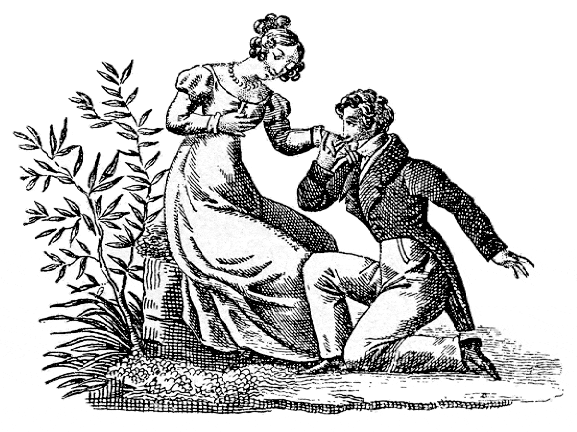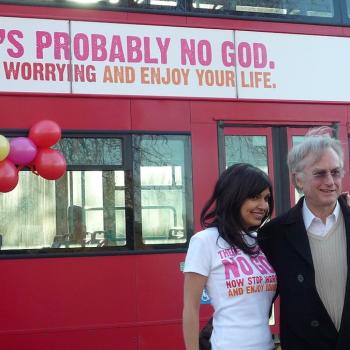
This passage from somewhere came across my radar screen earlier today, and I think it worthy of sharing:
“I asked an elderly woman once what it was like to be old and to know that the majority of her life was now behind her. She told me that she has been the same age her entire life. She said the voice inside of her head had never aged. She has always just been the same girl. Her mother’s daughter. She had always wondered when she would grow up and be an old woman. She said she watched her body age and her faculties dull but the person she is inside never got tired. She never aged. She never changed. Remember, our spirits are eternal. Our souls are forever. The next time you encounter an elderly person, look at them and know they are still a child, just as you are still a child and children will always need love, attention and purpose.” (Author Unknown)
I can honestly say that it well expresses how I myself feel as I totter ever more deeply into advanced geezerhood,. My body isn’t what it was at twenty-five, to put it mildly — truth be told, though, it was never all that good at twenty-five, either — but, inwardly, it amazes me that I’m as old as I am. I never expected to turn so old so fast. Inside, I’m still about twenty-five or thirty. I still wonder what it will be like to grow up. And then we die.

One of the charges against the Church of Jesus Christ of Latter-day Saints that invariably surprises and puzzles me runs more or less along the following lines: “The Mormon Church separates people at death. It teaches that families won’t be together in the afterlife, and it divorces husbands and wives. But then it offers to permit spouses and families to be together again if and only if they submit to it and fork large chunks of money over to it.”
This charge surprises me because it seems to presume that the default setting in Christendom is, and has historically been, that families will continue as families in the world to come, and that marriages will continue (unless, of course, they’re somehow broken up by malign Latter-day Saint interference). Amazingly, I’ve even seen indignation on this front from atheistic naturalists — as if they themselves believed that such relationships continue beyond the grave in any meaningful way. (If, as naturalistic materialism typically insists, human consciousness and personality cease at death, it’s difficult to see how family relationships or marriage would be very likely to persist in their absence.)
I’ve encountered this charge again over just the past few days. But here are some examples of Christian (and other) marriage vows that I’ve easily located online. They demonstrate that the default assumption among Christian denominations is that marital (and, therefore, family) relationships terminate at death, if not before. I have italicized phrases that make that assumption clear:
Catholic:
I, ___, take you, ___, for my lawful wife/husband, to have and to hold from this day forward, for better, for worse, for richer, for poorer, in sickness and in health, until death do us part. I will love and honor you all the days of my life.
Episcopalian:
In the name of God, I, ___, take you, ___, to be my wife/husband, to have and to hold from this day forward, for better, for worse, for richer, for poorer, in sickness and in health, to love and to cherish, until parted by death. This is my solemn vow.
Anglican
I [Name] take you [Name] to be my wife/husband, to have and to hold from this day forward, for better, for worse, for richer, for poorer, in sickness and in health, to love and to cherish, till death us do part, according to God’s holy law.
Anglican (The Declaration of Consent from the Book of Common Prayer):
The Celebrant says to the woman
N., will you have this man to be your husband; to live
together in the covenant of marriage? Will you love him,
comfort him, honor and keep him, in sickness and in health;
and, forsaking all others, be faithful to him as long as you
both shall live?The Woman answers
I will.
The Celebrant says to the man
N., will you have this woman to be your wife; to live
together in the covenant of marriage? Will you love her,
comfort her, honor and keep her, in sickness and in health;
and, forsaking all others, be faithful to her as long as you
both shall live?The Man answers
I will.
Orthodox:
I will be with you in bad days and in good, in times of prosperity and in times of poverty, in sickness and in health, until I am separated from you by death according to the ordinance of God the most High. And I give my word in oath before God and before the congregation of the Holy Orthodox Church.
Presbyterian:
I, ___, take you, ___, to be my wife/husband, and I do promise and covenant, before God and these witnesses, to be your loving and faithful husband/wife in plenty and in want, in joy and in sorrow, in sickness and in health, as long as we both shall live.
Generic Protestant:
I, ___, take thee, ___, to be my wedded wife/husband, to have and to hold from this day forward, for better, for worse, for richer, for poorer, in sickness and in health, to love and to cherish, till death do us part, according to God’s holy ordinance; and thereto I pledge thee my faith.
Quaker:
In the presence of God and these our friends, I take thee to be my wife/husband, promising with divine assistance to be unto thee a loving and faithful husband/wife so long as we both shall live.
Interfaith:
I,___, take you, ___, to be my wife/husband. I promise to be true to you in good times and in bad, in sickness and in health. I will love and honor you all the days of my life.
Nondenominational:
___, I now take you to be my wedded wife/husband, to live together after God’s ordinance in the holy relationship of marriage. I promise to love and comfort you, honor and keep you, and forsaking all others, I will be yours alone as long as we both shall live.
And, just for interest’s sake, here is a Muslim marriage vow. In Islam, as opposed to Christianity, marriage isn’t seen as a religious sacrament. It is a this-worldly contract.
Muslim:
I, (bride’s name), offer you myself in marriage and in accordance with the instructions of the Holy Quran and the Holy Prophet, peace and blessing be upon him. I pledge, in honesty and with sincerity, to be for you an obedient and faithful wife.
The groom responds: “I, (groom’s name), in accordance with the instructions of the Holy Quran and the Holy Prophet, peace and blessing be upon him. I pledge, in honesty and sincerity, to be for you a faithful and helpful husband.”
Feel free, too, to browse through a representative sample of secular wedding vows, where you will find no shortage of phrases such as “as long as you both shall live,” “as long as the two of you live,” “all the days of our lives,” “for all the days of my life,” “all the days of our lives,” and “until death should part us.”
Latter-day Saints didn’t introduce the notion that marital and family relationships end at the grave. They introduced a cure.

















